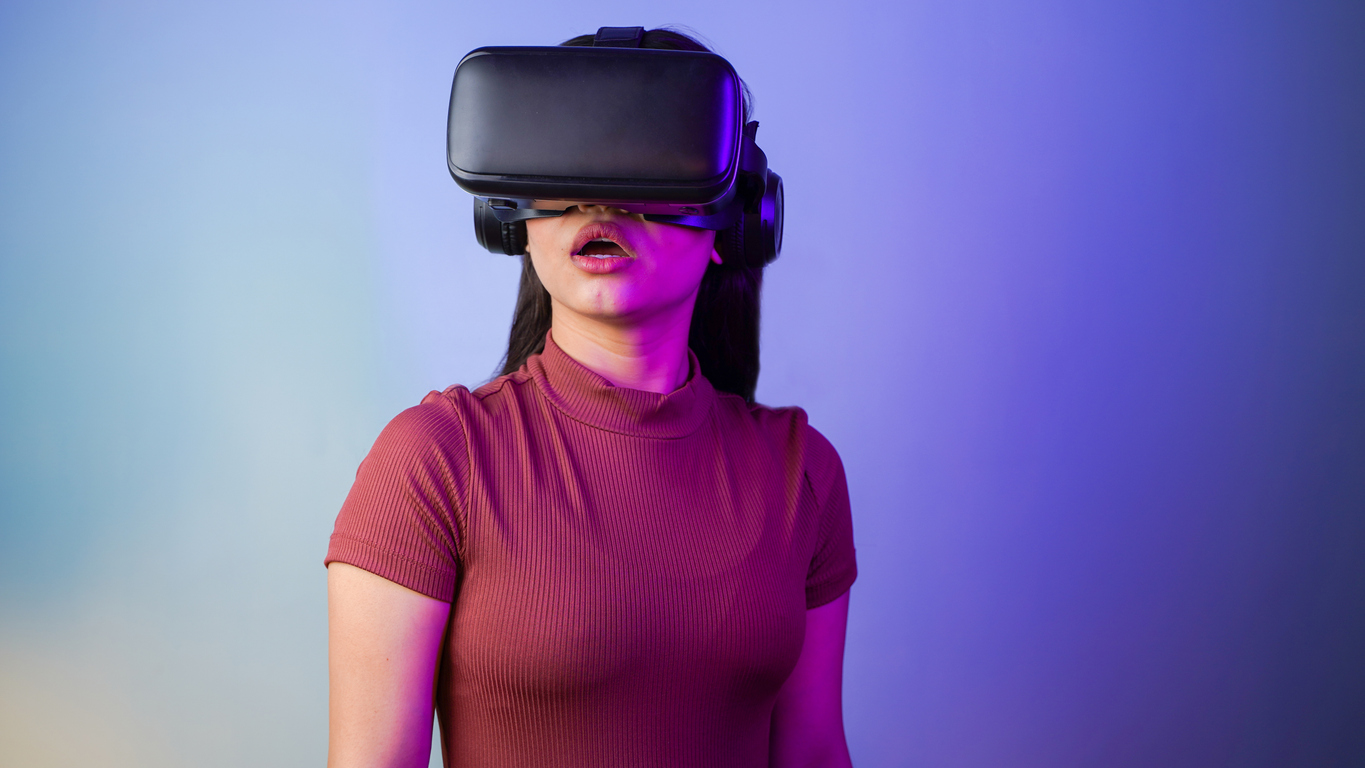2025-09-16
Virtual reality: a weapon against stigma?
Psychiatry
By Ana Espino | Published on september 16, 2025 | 3 min read
#VirtualReality #MentalDisorders #Psychiatry
Mental disorders, although highly prevalent, remain strongly stigmatized, even within environments that are supposed to be better informed, such as healthcare students. This stigma contributes to delays in seeking care, worsens social isolation, and perpetuates persistent prejudices. Traditional educational strategies have shown limited effectiveness, particularly when they rely on passive or purely theoretical formats.
In this context, immersive technologies such as virtual reality (VR) are emerging as innovative tools to foster lived empathy by placing participants in the shoes of a patient with mental illness. The main challenge, however, lies in measuring the true effectiveness of this approach and comparing its impact on trained audiences (healthcare students) versus untrained ones (students from other disciplines).
The objective of this study was to assess the impact of an immersive VR experience on stigmatizing attitudes in two groups of students — healthcare and non-healthcare — within a randomized controlled trial.
A total of 206 students were randomly assigned to two groups:
Both types of content simulated the daily experiences of a person living with psychotic disorders, including auditory hallucinations and situations of social stigma. Stigmatizing attitudes were evaluated before, immediately after, and two weeks after the intervention, using three validated scales: Social Distance Scale, Personal Stigma, and Perceived Stigma.
The results showed that, compared to the control group, the VR group significantly reduced perceived social distance and personal stigmatizing attitudes, both among healthcare and non-healthcare students. Immersive VR proved particularly effective in inducing immediate empathy and raising greater awareness of the discrimination experienced by people with mental disorders. These effects were maintained at two weeks, although slightly attenuated, suggesting moderate durability of the impact.
Psychiatric disorders remain highly stigmatized conditions, even in academic settings. Traditional approaches struggle to bring about lasting changes in perception, especially on the emotional level. This study sought to test an immersive VR approach capable of generating a sensory, lived experience beyond simple knowledge transfer.
The findings confirm that VR is a powerful educational tool, able to reduce stigmatizing attitudes in the short term, particularly by altering perceived social distance. This benefit was observed in both healthcare and non-healthcare students, highlighting the universal emotional impact of the experience.
However, the study also has limitations that call for further research. Future studies should include longer-term follow-up, a more diverse sample in terms of geography and culture, and the integration of objective behavioral measures beyond self-reports. In the long term, the aim is to evaluate the lasting impact of VR on attitudes and behaviors in real-world conditions.
Integrating this technology into university curricula, combined with more robust indicators and immersive scenarios extended to other mental disorders or social contexts, could make it a central tool in combating stigma. By focusing on lived experience, VR offers a unique lever to change perceptions where traditional approaches have reached their limits.
About the author – Ana Espino
As a scientific writer, Ana is passionate about bridging the gap between research and real-world impact. With expertise in immunology, virology, oncology, and clinical studies, she makes complex science clear and accessible. Her mission: to accelerate knowledge sharing and empower evidence-based decisions through impactful communication.
#VirtualReality #MentalDisorders #Psychiatry
Mental disorders, although highly prevalent, remain strongly stigmatized, even within environments that are supposed to be better informed, such as healthcare students. This stigma contributes to delays in seeking care, worsens social isolation, and perpetuates persistent prejudices. Traditional educational strategies have shown limited effectiveness, particularly when they rely on passive or purely theoretical formats.
In this context, immersive technologies such as virtual reality (VR) are emerging as innovative tools to foster lived empathy by placing participants in the shoes of a patient with mental illness. The main challenge, however, lies in measuring the true effectiveness of this approach and comparing its impact on trained audiences (healthcare students) versus untrained ones (students from other disciplines).
The objective of this study was to assess the impact of an immersive VR experience on stigmatizing attitudes in two groups of students — healthcare and non-healthcare — within a randomized controlled trial.
Diving into reality to change perceptions?
A total of 206 students were randomly assigned to two groups:
- An immersive VR intervention group;
- A control group exposed to an informative 2D video.
Both types of content simulated the daily experiences of a person living with psychotic disorders, including auditory hallucinations and situations of social stigma. Stigmatizing attitudes were evaluated before, immediately after, and two weeks after the intervention, using three validated scales: Social Distance Scale, Personal Stigma, and Perceived Stigma.
The results showed that, compared to the control group, the VR group significantly reduced perceived social distance and personal stigmatizing attitudes, both among healthcare and non-healthcare students. Immersive VR proved particularly effective in inducing immediate empathy and raising greater awareness of the discrimination experienced by people with mental disorders. These effects were maintained at two weeks, although slightly attenuated, suggesting moderate durability of the impact.
Changing minds through immersion
Psychiatric disorders remain highly stigmatized conditions, even in academic settings. Traditional approaches struggle to bring about lasting changes in perception, especially on the emotional level. This study sought to test an immersive VR approach capable of generating a sensory, lived experience beyond simple knowledge transfer.
The findings confirm that VR is a powerful educational tool, able to reduce stigmatizing attitudes in the short term, particularly by altering perceived social distance. This benefit was observed in both healthcare and non-healthcare students, highlighting the universal emotional impact of the experience.
However, the study also has limitations that call for further research. Future studies should include longer-term follow-up, a more diverse sample in terms of geography and culture, and the integration of objective behavioral measures beyond self-reports. In the long term, the aim is to evaluate the lasting impact of VR on attitudes and behaviors in real-world conditions.
Integrating this technology into university curricula, combined with more robust indicators and immersive scenarios extended to other mental disorders or social contexts, could make it a central tool in combating stigma. By focusing on lived experience, VR offers a unique lever to change perceptions where traditional approaches have reached their limits.
Read next: Can VR tip the balance?
About the author – Ana Espino
PhD in Immunology, specialized in Virology

Last press reviews
Turner syndrome and autoimmunity: an underestimated association?

By Ana Espino | Published on December 8, 2025 | 3 min read<br>
Could cinnamon become a natural treatment for metabolic syndrome?

By Lila Rouland | Published on December 5, 2025 | 3 min read<br><br>...
Who is afraid of Christmas? Do holidays trigger psychiatric crises?

By Carolina Lima | Published on Décember 4, 2025 | 3 min read